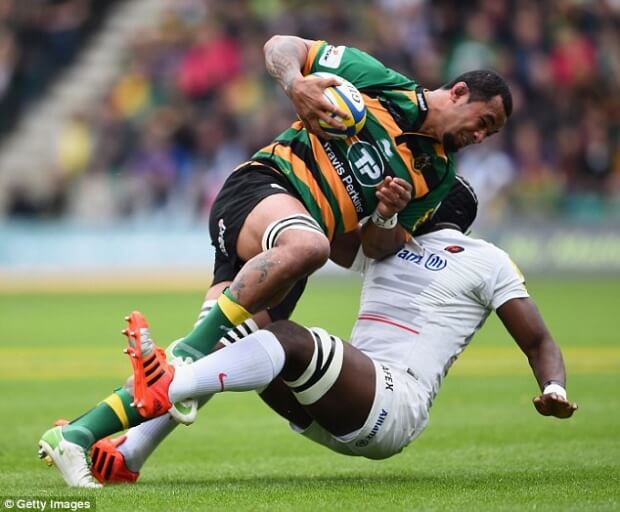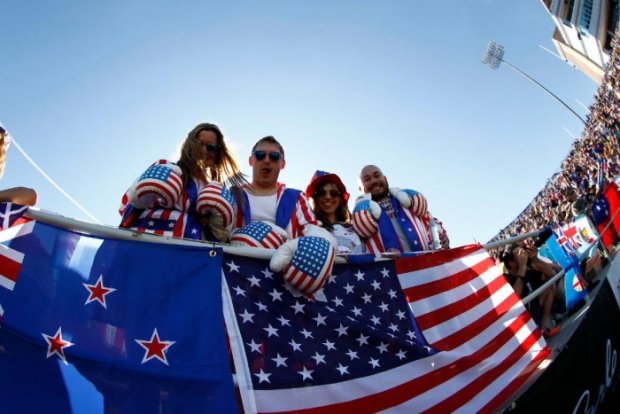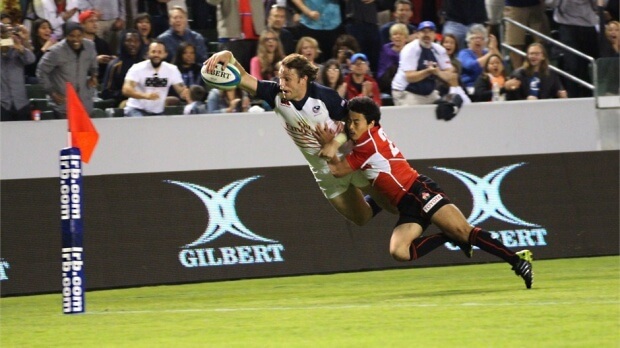USA! USA! USA!….. Okay, a bit over the top there. But here’s something to consider. Rugby is on the up in the States and their increased coaching and participation have improved the national team’s outlook. This might just end up being the Eagles’ year in the Rugby World Cup.
1. The Recent Form
The Yanks have been getting progressively better over the last few years. This year, they’ve won 3 of the 5 tests they’ve played. The two losses came during the Pacific Nations Cup against the much higher-ranked Tonga and Samoa. And they were close losses. They also defeated Japan in that competition this year. That’s important in the context of this year’s RWC.
They’ve also flipped the script on Canada recently, reversing the previous relationship to win their last 3 matches against their northern neighbour.
2. The 7s Movement
7s is becoming extremely popular in the US and is improving the stocks of backs the country had been unable to produce previously. Almost all of the players in the backline are experienced 7s campaigners and represent their country in both forms of the game.
Five of the current squad came directly out of the 7s program, including one of the players to watch – Zack Test. The winger has just 3 test caps, but has over 100 tries in the Sevens World Series. These guys are bringing a lot of motor to the team, which previously seemed a bit sluggish and set-piece focussed.
3. Samu Manoa

Samu Manoa just sounds like the name of a big, tough dude, doesn’t it. And Samu doesn’t disappoint. At 201cm tall and 122kg, the bloke sure is a big unit.
More than that, though, he can play. He’s spent the last five years and 122 games terrorising the Premiership for Northampton. He’s impressed so much that he’s recently moved to superstar retirement village, Toulon.
While he’s been plying his trade at lock in the UK, it seems likely he’ll see a fair bit of his game time at Number 8 – especially considering that the lock spots are being ably handled by Australian-Americans, Hayden Smith and Greg Peterson.
4. The Captain Controversy

The Eagles will be led by some bloke named Chris Wyles. Prior to July, the captain was the much more recognisable 63 test flanker, Todd Clever, who apparently showed how inappropriately named he is when he was dumped from the squad for disciplinary reasons.
To be fair to Wyles, he’s been around a long time and has a lot of experience. He’ll likely captain the team from the fullback position, though his 177 caps for Saracens have mostly been on the wing. With 49 tests under his belt, he has the team experience to take on the job, as well.
There’s a fair bit of weight falling on Wyles’ shoulders this year. He’s stepping into the shoes of Clever, who is probably the Eagles’ biggest name. More than that, though, 300,000 players and who knows how many supporters will want to see the team crystallise under his leadership.
5. Swimming in a Small Pool
This is where it gets interesting. A lot of pundits have written the Eagles off before they even arrive for the tournament. The UK Telegraph unceremoniously said “…their main goal will be to not finish bottom.”
But I suspect that sells the Eagles short.
The USA joins South Africa, Samoa, Scotland and Japan in pool B. And while none of these would be considered an easy win for the USA, three of the games are winnable.
The Eagles have already beaten Japan and came within 5 points of Samoa during the Pacific Nations Cup. With Manoa and other key players to be added to the squad from that tournament, they’d give themselves a chance against both teams. And, if you’re giving yourself a chance against Samoa, you’d surely give yourself a chance against the Scots, as well.
I certainly don’t think they’re going to run the board, but a game or two really isn’t out of the question. And, if you’re a betting person, 50-1 might be a pretty good price for them to get out of the pool.




